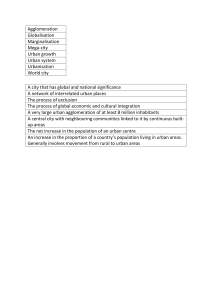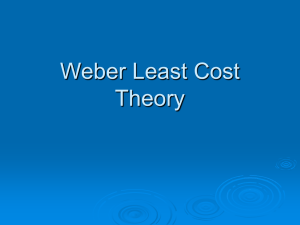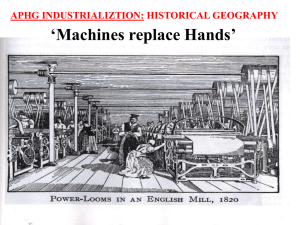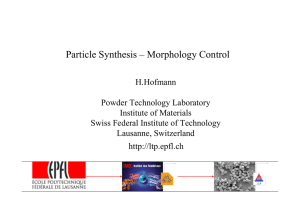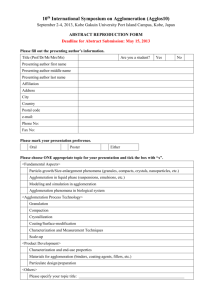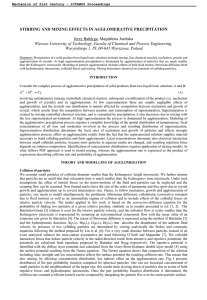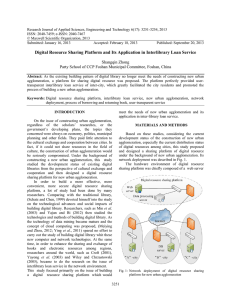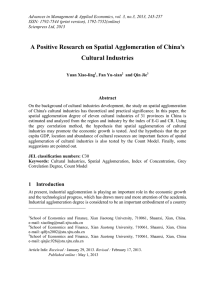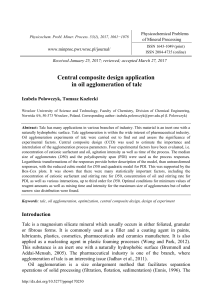P r o f . C h r... Spring 2011 COLLOQUIUM SERIES
advertisement
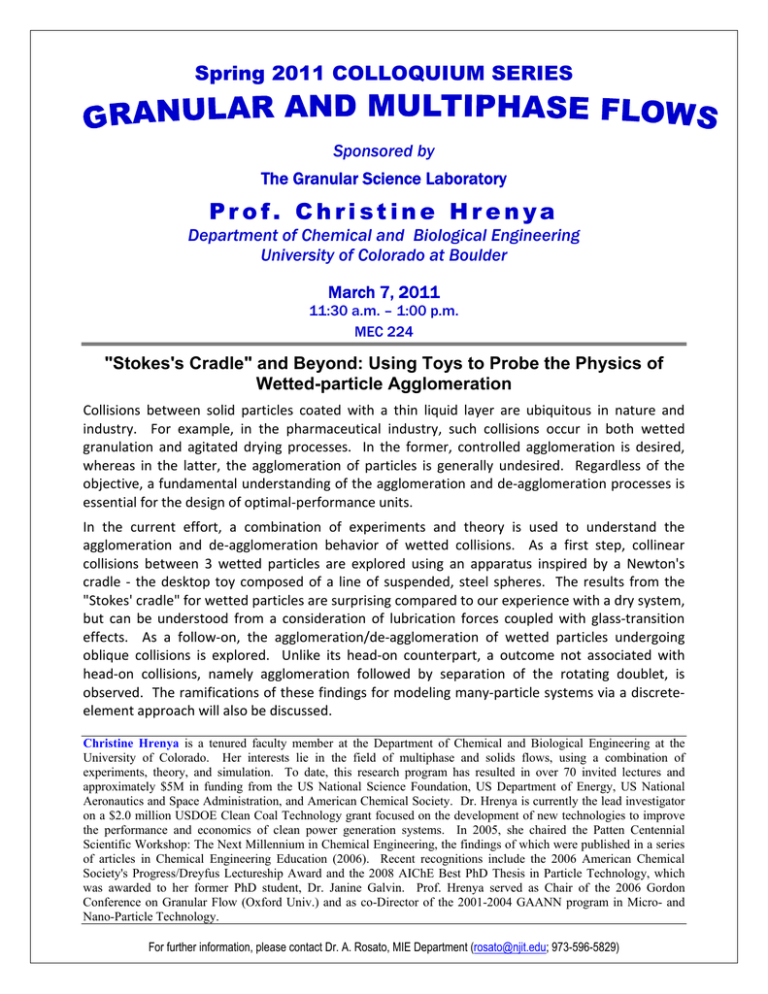
Spring 2011 COLLOQUIUM SERIES Sponsored by The Granular Science Laboratory Prof. Christine Hrenya Department of Chemical and Biological Engineering University of Colorado at Boulder March 7, 2011 11:30 a.m. – 1:00 p.m. MEC 224 "Stokes's Cradle" and Beyond: Using Toys to Probe the Physics of Wetted-particle Agglomeration Collisions between solid particles coated with a thin liquid layer are ubiquitous in nature and industry. For example, in the pharmaceutical industry, such collisions occur in both wetted granulation and agitated drying processes. In the former, controlled agglomeration is desired, whereas in the latter, the agglomeration of particles is generally undesired. Regardless of the objective, a fundamental understanding of the agglomeration and de‐agglomeration processes is essential for the design of optimal‐performance units. In the current effort, a combination of experiments and theory is used to understand the agglomeration and de‐agglomeration behavior of wetted collisions. As a first step, collinear collisions between 3 wetted particles are explored using an apparatus inspired by a Newton's cradle ‐ the desktop toy composed of a line of suspended, steel spheres. The results from the "Stokes' cradle" for wetted particles are surprising compared to our experience with a dry system, but can be understood from a consideration of lubrication forces coupled with glass‐transition effects. As a follow‐on, the agglomeration/de‐agglomeration of wetted particles undergoing oblique collisions is explored. Unlike its head‐on counterpart, a outcome not associated with head‐on collisions, namely agglomeration followed by separation of the rotating doublet, is observed. The ramifications of these findings for modeling many‐particle systems via a discrete‐ element approach will also be discussed. Christine Hrenya is a tenured faculty member at the Department of Chemical and Biological Engineering at the University of Colorado. Her interests lie in the field of multiphase and solids flows, using a combination of experiments, theory, and simulation. To date, this research program has resulted in over 70 invited lectures and approximately $5M in funding from the US National Science Foundation, US Department of Energy, US National Aeronautics and Space Administration, and American Chemical Society. Dr. Hrenya is currently the lead investigator on a $2.0 million USDOE Clean Coal Technology grant focused on the development of new technologies to improve the performance and economics of clean power generation systems. In 2005, she chaired the Patten Centennial Scientific Workshop: The Next Millennium in Chemical Engineering, the findings of which were published in a series of articles in Chemical Engineering Education (2006). Recent recognitions include the 2006 American Chemical Society's Progress/Dreyfus Lectureship Award and the 2008 AIChE Best PhD Thesis in Particle Technology, which was awarded to her former PhD student, Dr. Janine Galvin. Prof. Hrenya served as Chair of the 2006 Gordon Conference on Granular Flow (Oxford Univ.) and as co-Director of the 2001-2004 GAANN program in Micro- and Nano-Particle Technology. For further information, please contact Dr. A. Rosato, MIE Department (rosato@njit.edu; 973-596-5829)
